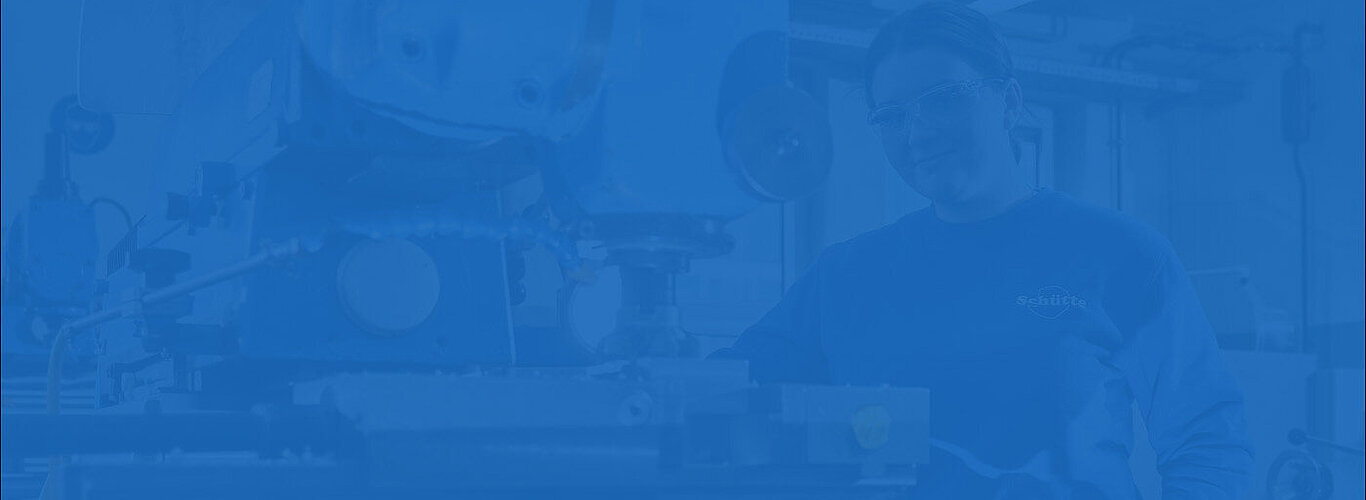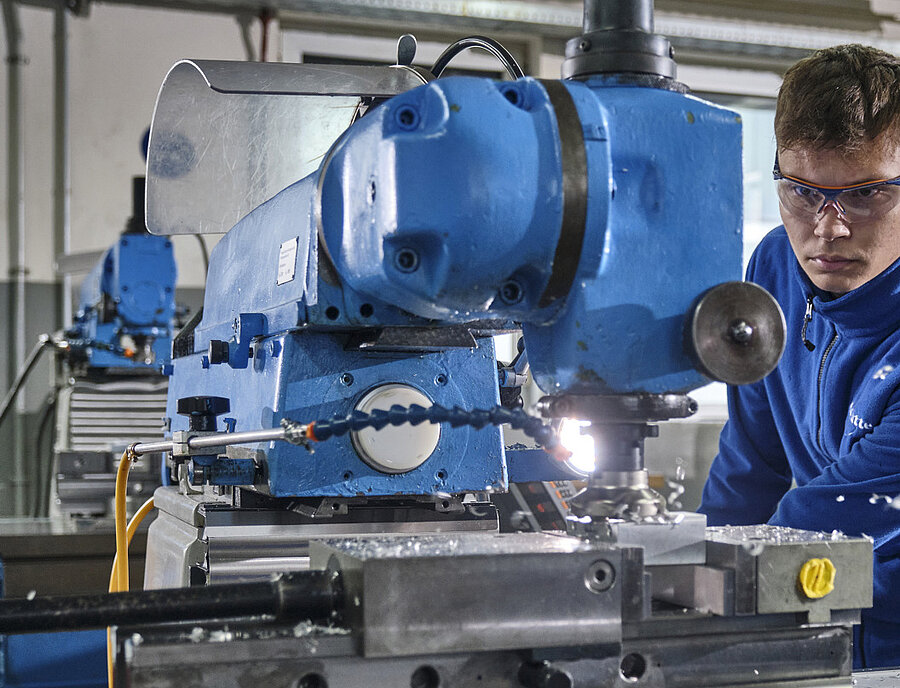
If you are the type who repairs things rather than just throwing them away and you are interested in high-tech products, then you have the best chances of finding your dream job as an industrial mechanic.
As an industrial mechanic at Schütte, you maintain our machines and carry out regular maintenance and inspections. This is no easy task, because many of our machines are true high-tech wonders. That's why this job requires technical intelligence, manual dexterity and a great deal of sensitivity. To make sure everything runs smoothly, you have to work very precisely and responsibly. As a trained industrial mechanic, you decide which test procedures to use to inspect the machine and whether a spare part needs to be procured or manufactured. And because several colleagues often work together to inspect, repair or rebuild a machine, team spirit is required.
In mechanical engineering, industrial mechanics mainly produce components from steel, aluminium, brass and plastics. To do this, they have to process the material by turning, milling or grinding and then assemble it, e.g. by welding or screwing. Reading and understanding technical drawings are therefore necessary.
Sometimes industrial mechanics have to set up the machines on site at the customer's premises and instruct the customer in their operation. This can sometimes be abroad.
All in all, this is a very interesting and versatile apprenticeship with many opportunities in your future career. But of course, no master has fallen from the sky, so we teach you everything a successful industrial mechanic needs to know in 3.5 years.

During the 3.5 years of training, you will go to the vocational school 1-2 times a week where you will be taught everything about production, assembly, maintenance, automation and much more. On the other 3-4 days, you will learn about the practical side of the job in our training workshop and on projects with colleagues.
As already mentioned, you should have technical understanding, manual dexterity and an interest in mechanics. The minimum requirement is a secondary school leaving certificate type 10B and good grades in Mathematics, German and Physics.
All applicants first receive a confirmation of receipt of their documents. After a pre-selection, which is made on the basis of the information from the applications, we invite the suitable applicants to a first personal interview with the trainers and the personnel department. This is followed by a further appointment in which the company is presented during a tour, among other things. In the technical occupations, you will also get to know the training workshop. If you are still sure that you want to start training at Schütte and we are, then you will receive an acceptance letter and the corresponding training contract at very short notice.
That always depends on the respective training. For all of them, however, you should have good grades, an open mind for new things, and team spirit and commitment are required.
Depending on the occupation, it takes 3-3.5 years. For industrial clerks, it can be shortened from 3 to 2.5 years with the right school-leaving certificate.
The training allowance is subject to the IG-Metall collective agreement. Of course, the salary plays a big role. So don't be afraid to ask about it.
Training always starts in September. You should apply about a year in advance.
Due to sustainability, we now only accept applications by email.
We have an exact number of free places available in each training area and each year. These are always noted on the website. If there are no vacancies addressed there, we have already filled all positions. We can then consider a speculative application for the coming year at the earliest.
If you have received an invitation to an interview, you should inform yourself in advance about Schütte and the desired apprenticeship. You can find everything you need to know on our website. Think about your strengths and weaknesses and the reason for your career choice. A tip from us: Practice a conversation with your parents or friends. It may feel strange, but it helps.
With an invitation to an interview, we have already liked your profile. So the first hurdle has already been taken. If you have prepared well, there is no reason to be nervous. Just be yourself. We want to get to know you better during the interview and you should take advantage of this opportunity. After all, we should both be sure that the training field and we as an employer are right for you. Therefore, you should also take the opportunity to ask us everything that interests you.
We will try to help you as much as possible with your application. If you still have questions, you can always send us an email an:personal@schuette.de or call us on 0221 83 99 0. We look forward to hearing from you.